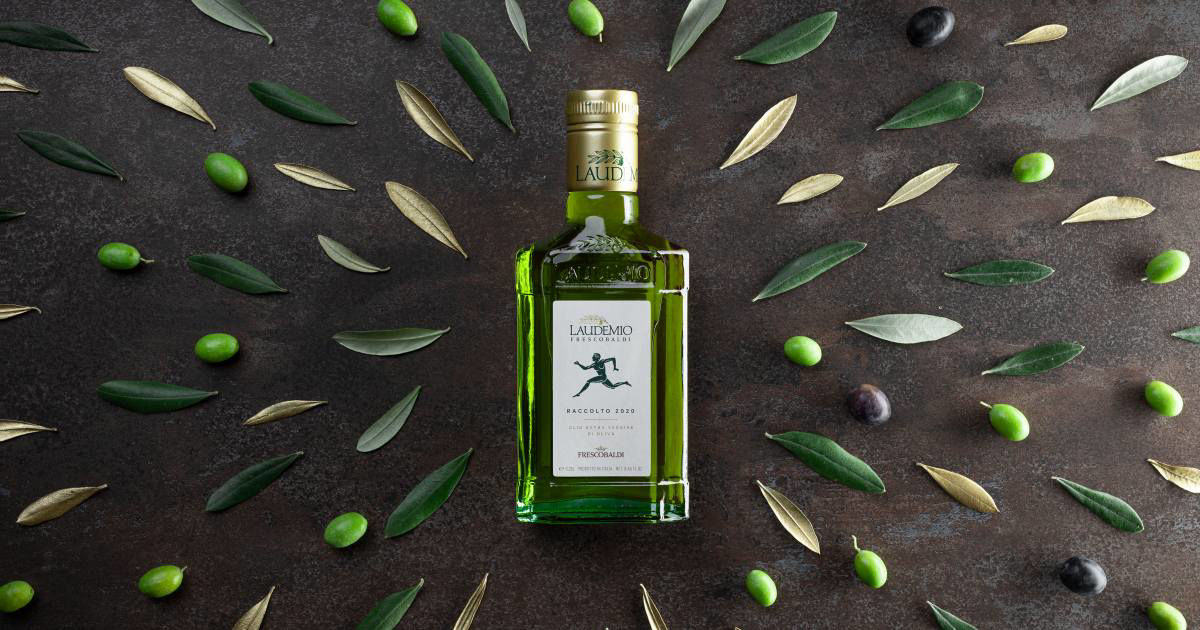
Extra virgin olive oil possesses a unique flavour and texture, and beautiful colour, as well as numerous health benefits. Nevertheless, if not stored correctly over time, oil's taste, texture, and colour can change and it can even lose many of its properties. Follow this guide to learn how to store olive oil in a proper manner to preserve all its qualities.
Olive oil storage: How to preserve its sensory properties
Proper storage of extra virgin olive oil is fundamental to maintaining its aroma and flavour features, and, most importantly, to preserve the nutritional properties that make it so beneficial to our health. For this reason, we offer some general guidelines on how to best store extra virgin olive oil and thus preserve all its qualities and properties that confer many benefits.
Regarding the conservation of olive oil, four factors must be considered to prevent its characteristics from being altered. It is necessary to hide it, especially from light, air, smells, and unstable temperatures. Therefore, extra virgin olive oil should always be stored in cool and dry places, away from sources of heat, and it is recommended to always close the bottle after use.
Optimal storage temperatures for olive oil
It is essential to keep containers of extra virgin olive oil away from any source of heat. Long exposure to heat can cause the evaporation of the various components that are in extra virgin olive oil, deteriorating its texture and making it lighter.
The optimal storage temperature for olive oil is between 12 and 18°C, which is why we always advise storing extra virgin olive oil in a cool and dry place (with low humidity), preferably dark with a constant temperature. Even rapid temperature fluctuations can significantly deteriorate the oil, damaging its antioxidant properties and the richness of polyphenols from a nutritional point of view, as well as its taste and sensory qualities.
For these reasons knowing how to store olive oil is so fondumental!
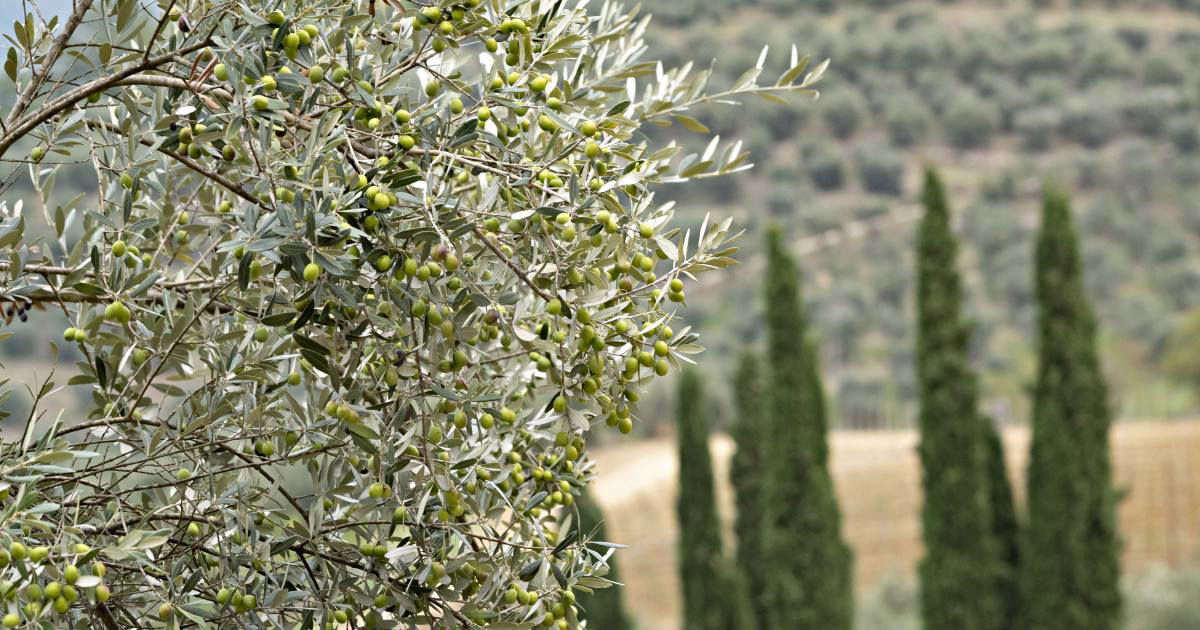
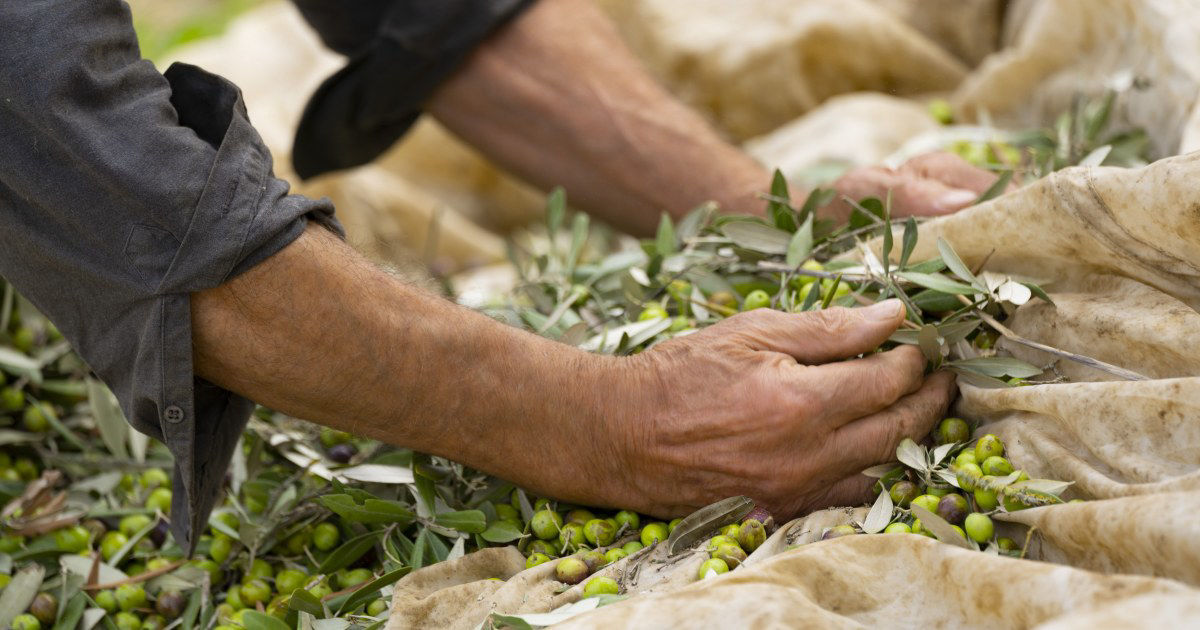
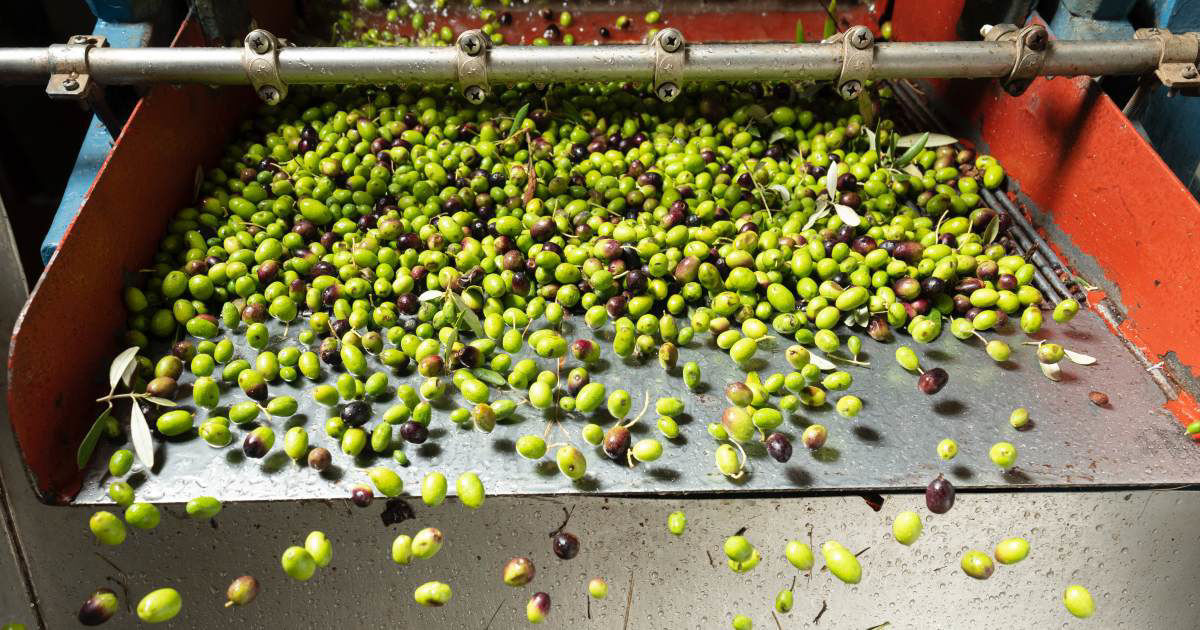
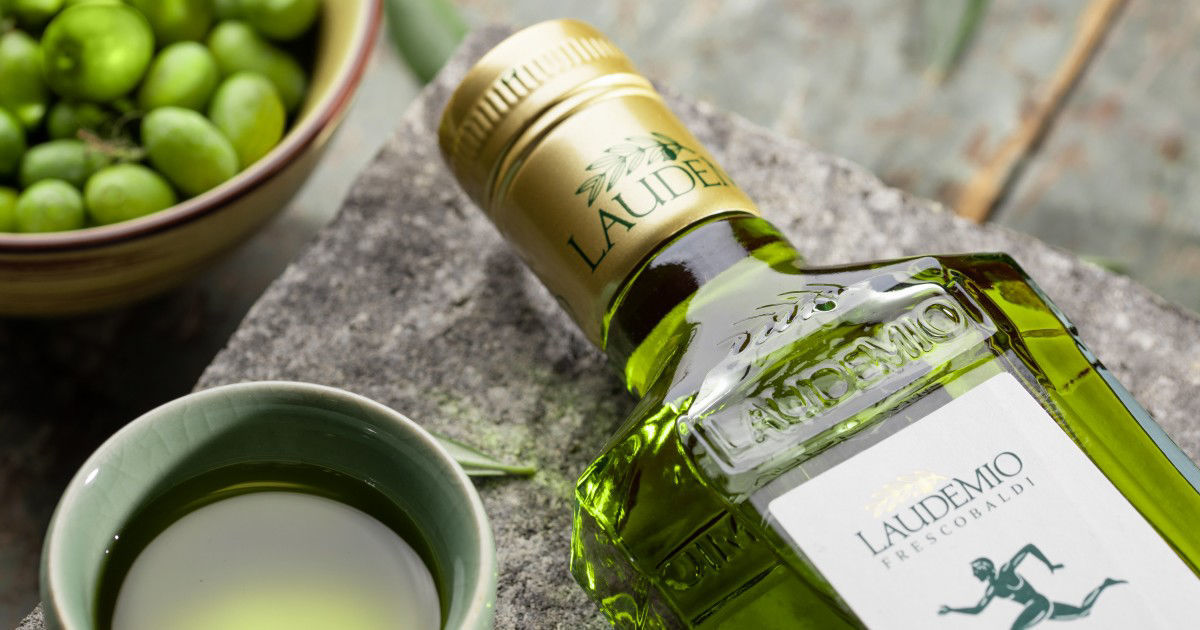
Containers suitable for storing olive
Even though extra virgin olive oil contains numerous components that act as natural antioxidants, if left in contact for a long period with the oxygen in the air, it will eventually become rancid. Therefore, it is very important that the container is properly closed.
Direct light is another aspect that significantly alters the composition of extra virgin olive oil, so it is advisable to store oil containers in a dark or low-light place. In addition, an element that can help is that olive oil is packaged in a thick glass bottle or can with a dark colour.
Consequently, the best container for storing olive oil is the one that protects it from light, air, heat, and smells. For this reason, metal cans and other opaque containers are the most suitable for storing oil.
- Metal cans prevent the oil from seeing the light since the oil is never exposed. In addition, many are equipped with opening and closing systems with a pressure cap, ideal for preventing the entry of air. Since the oil is less exposed, it is more protected with this type of container, you just have to ensure it is not at high temperatures.
- Opaque glass bottles, usually green or black, protect the oil from most direct light, for this reason, they are another excellent alternative for storing it correctly. The bottles are convenient to keep at home, and many are equipped with screw caps suitable for protecting them from air and dispensers that make them easy to serve.
How long does olive oil last
OAfter the specific shelf life of olive oil, it can become rancid and lose its good taste. One way to determine if the oil is still good or has expired is to understand its lifecycle. Extra virgin olive oils last about 12 to 18 months from bottling. However, as we have already mentioned, olive oils can develop negative notes even before this time if not stored correctly. Here are some notes to help determine if olive oil has gone bad, in addition to checking the preferred consumption date on the label.
Signs that the olive oil is going bad
- Colour - When olive oil is in poor condition, its colour is strange and unnatural. Normally, oils have a range of colours that goes from emerald green to golden. Any colour outside of this range is an indicator that the olive oil is not in good condition.
- Smell - The smell of expired olive oil resembles that of paint, solvent, or paint thinner.
- Taste - Over time, particles of free oleic acid form in olive oil. These particles increase the acidity level and weaken the taste, giving it a rancid flavour.